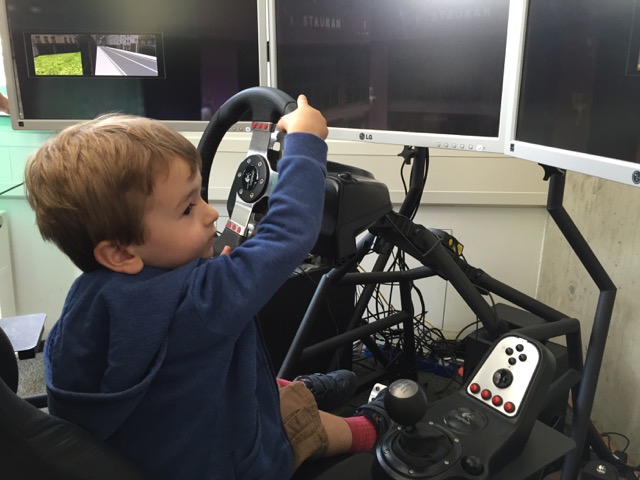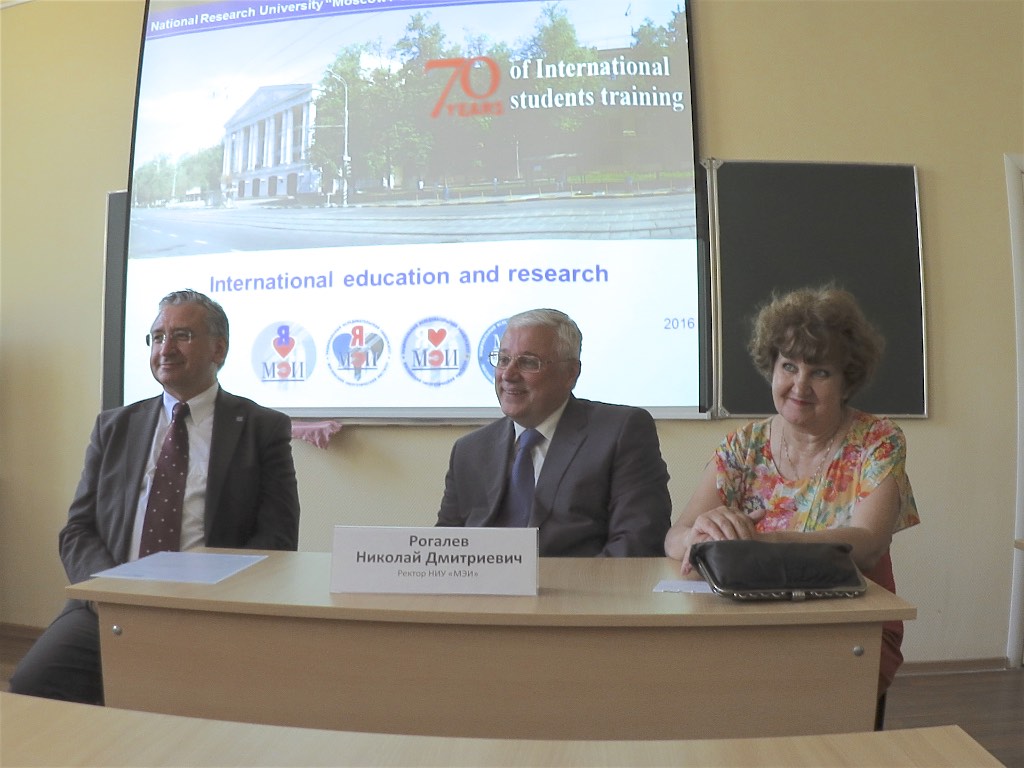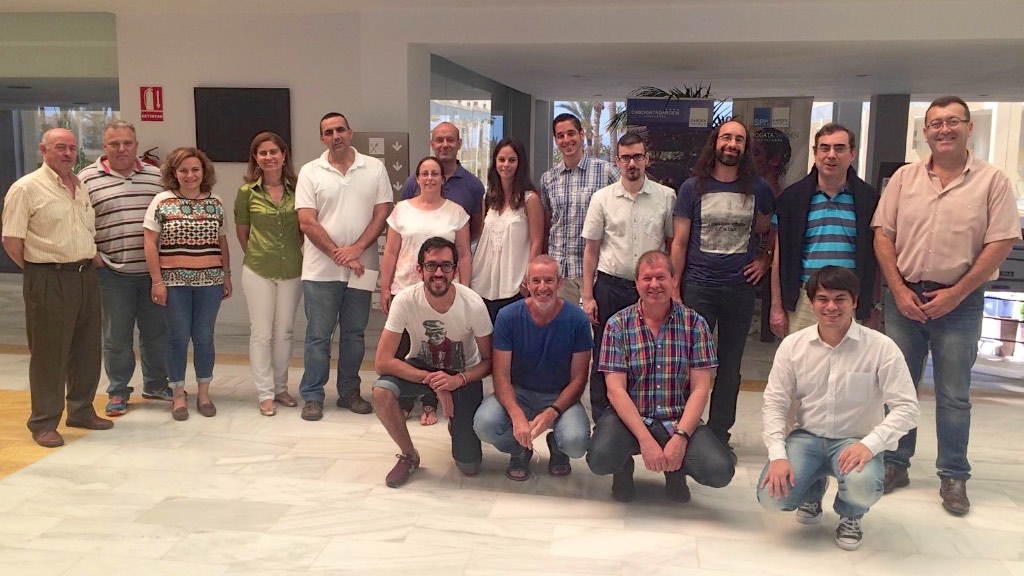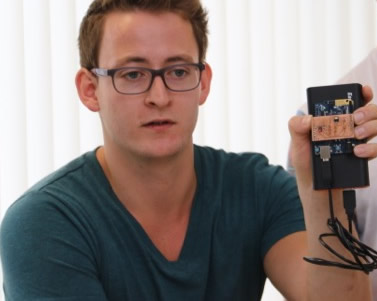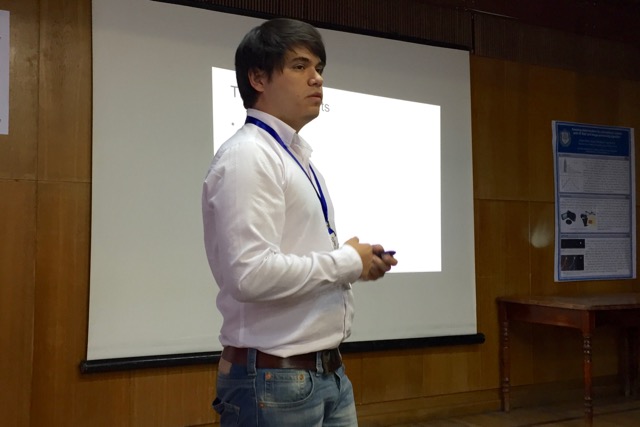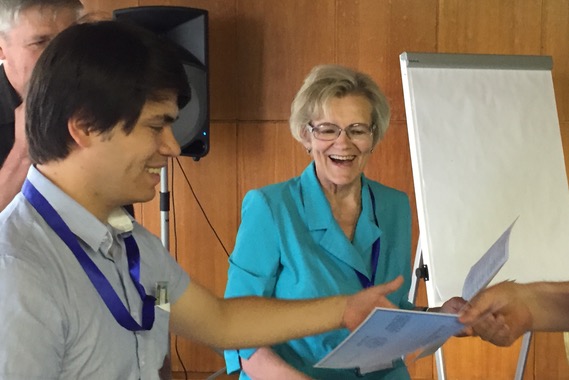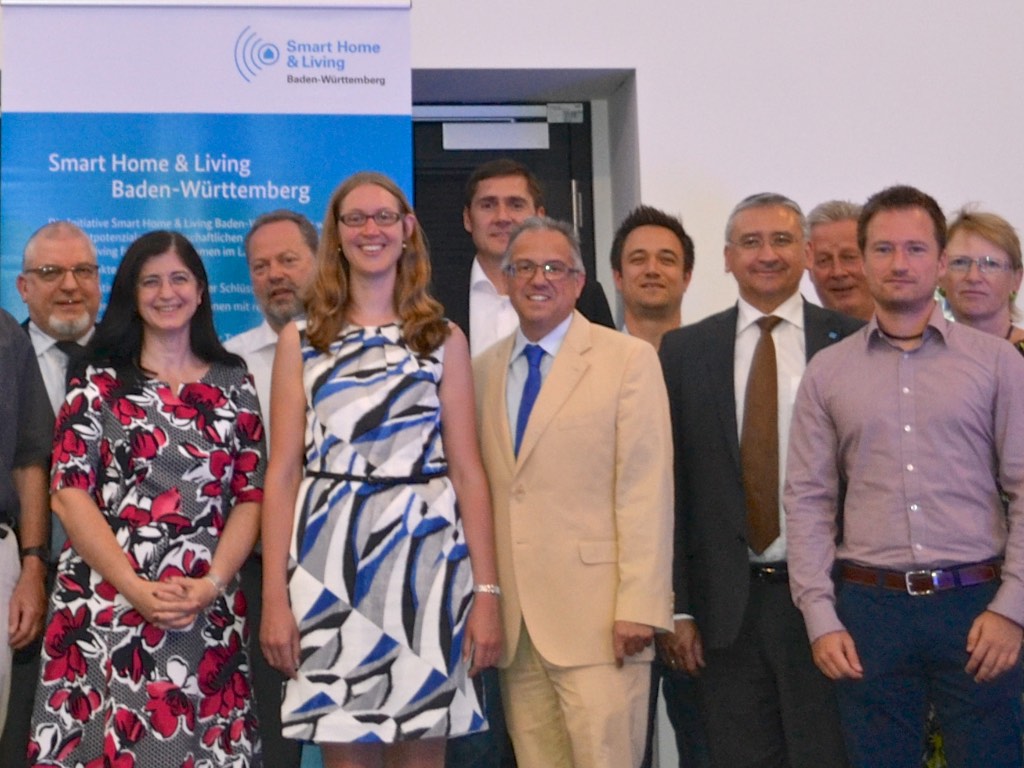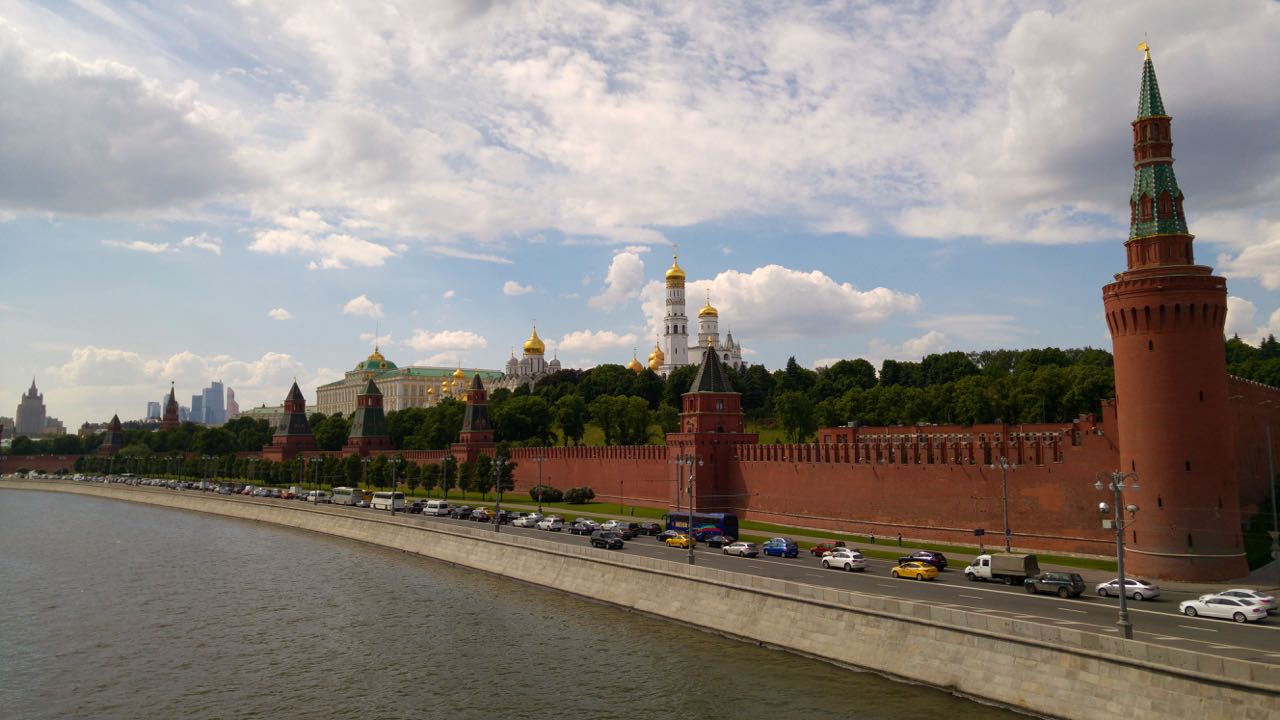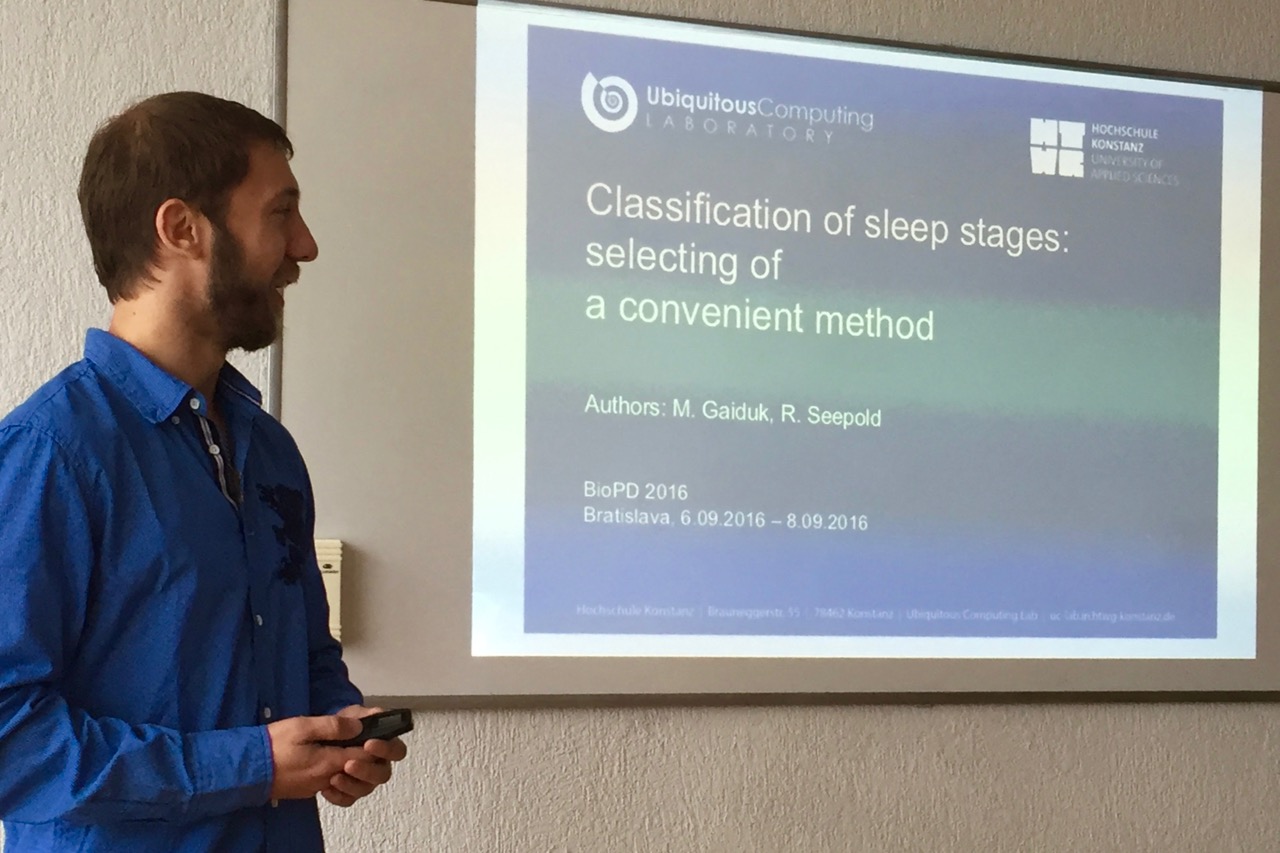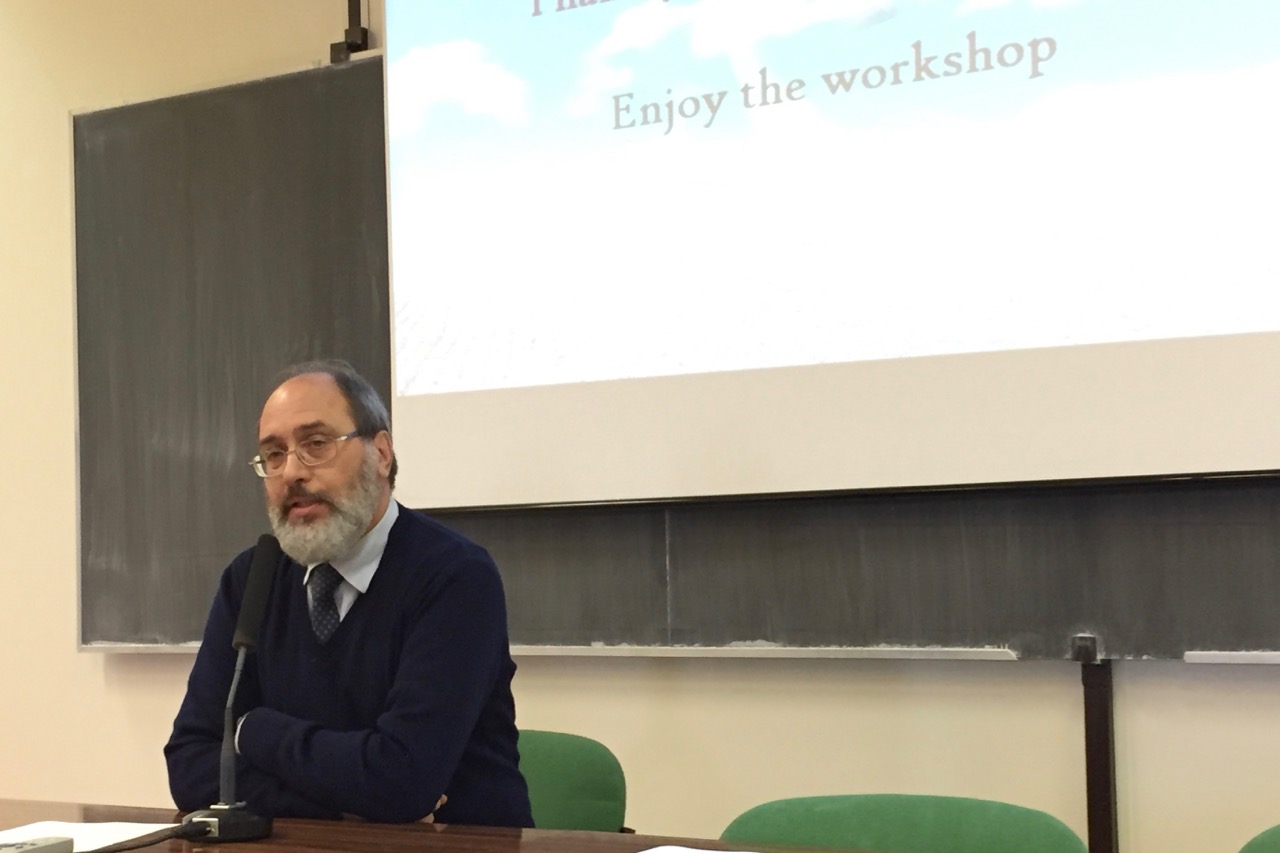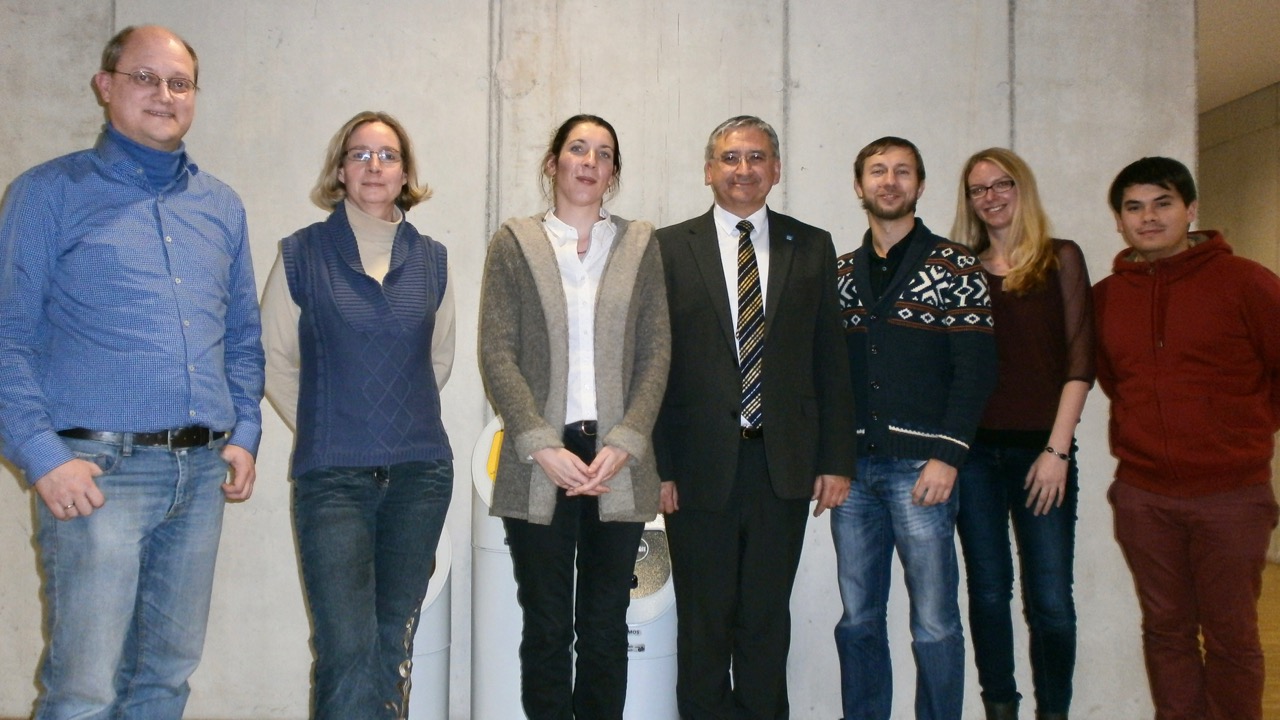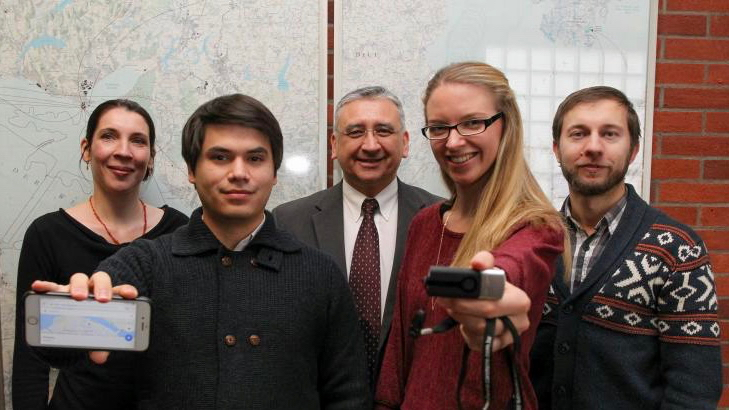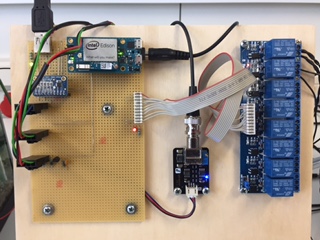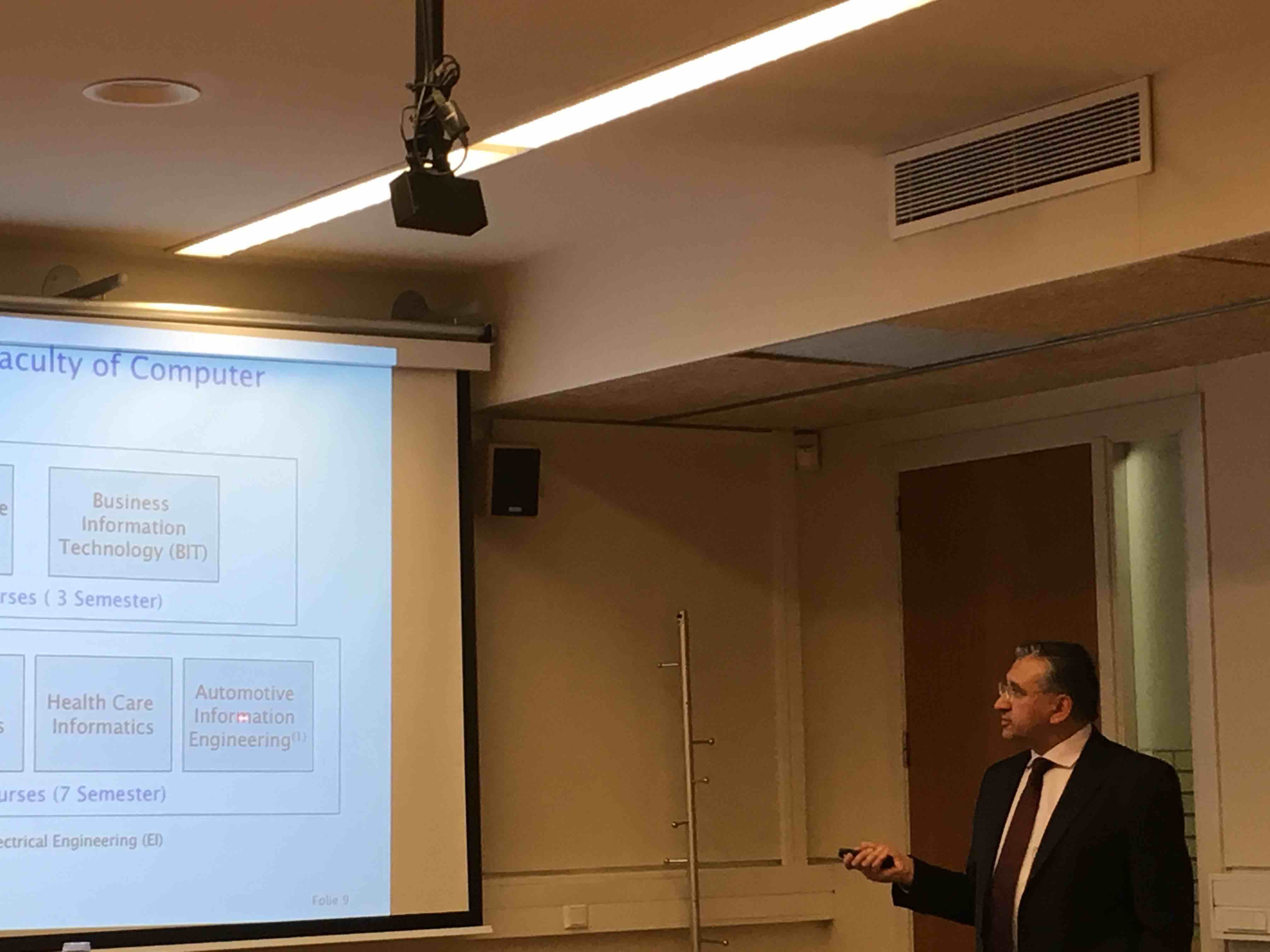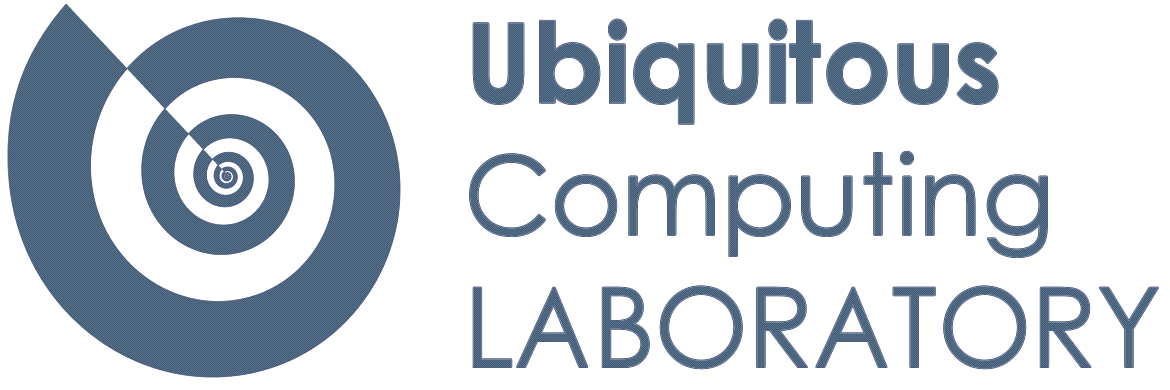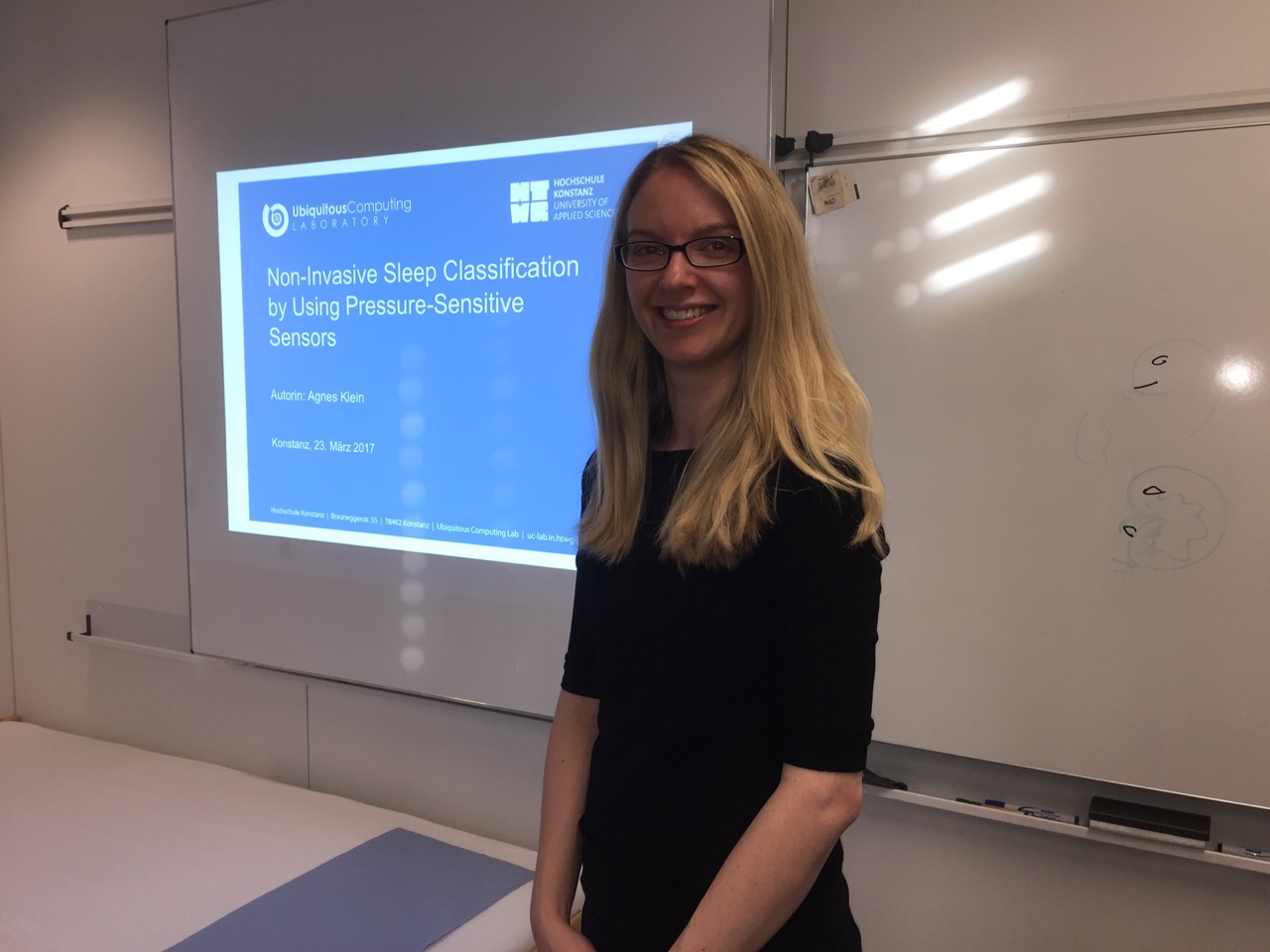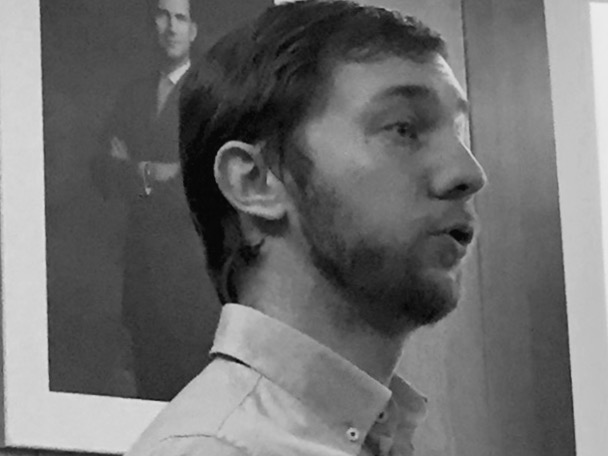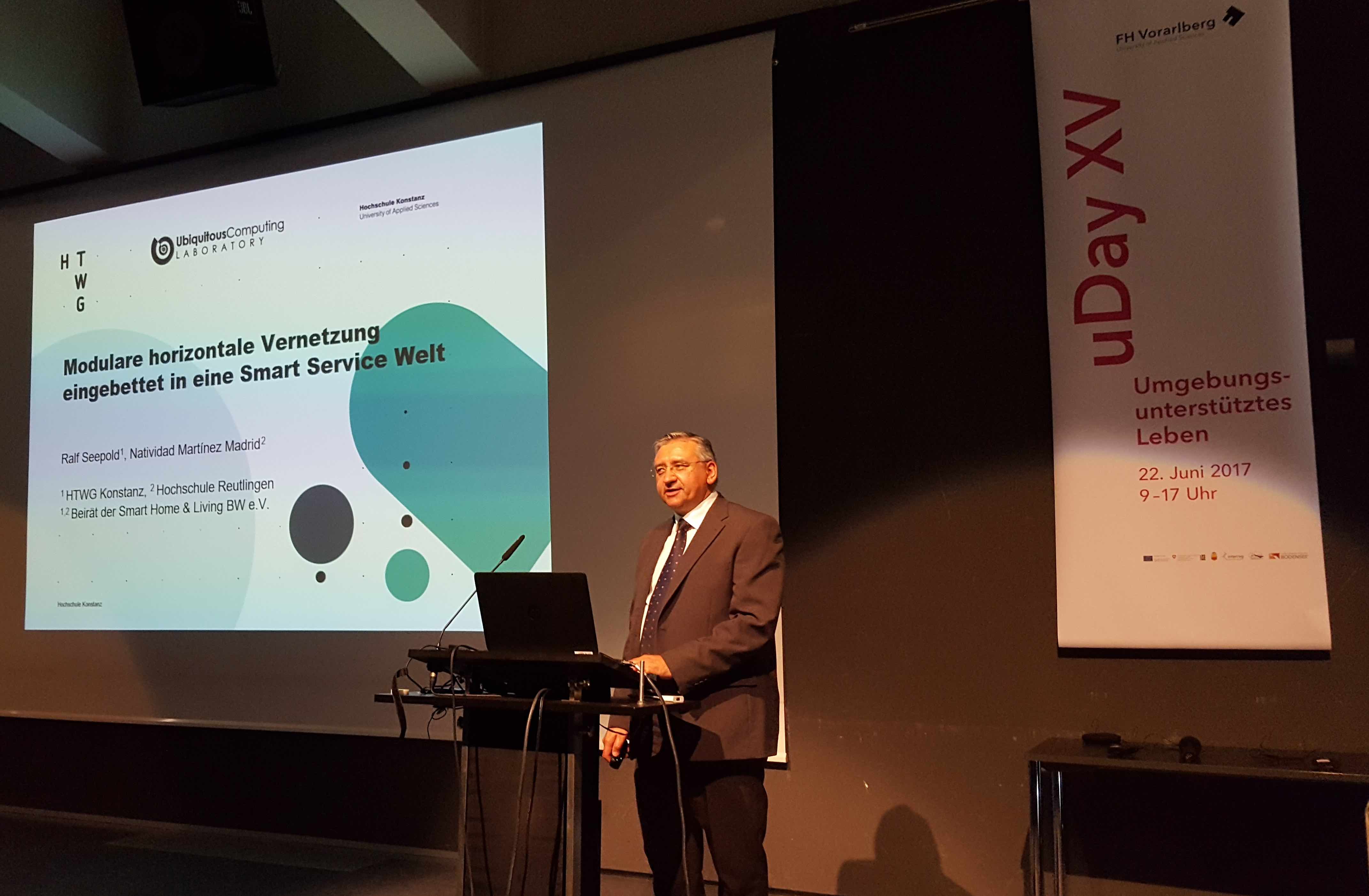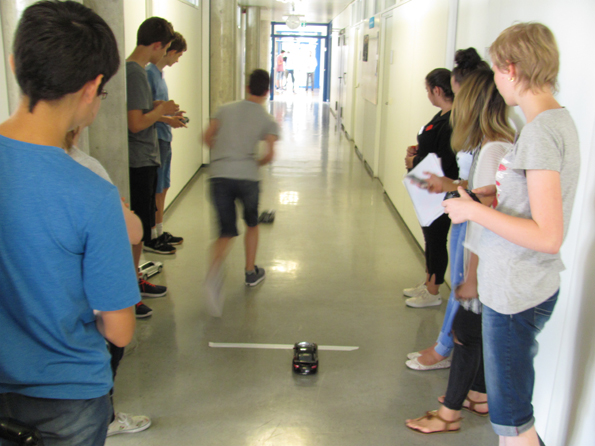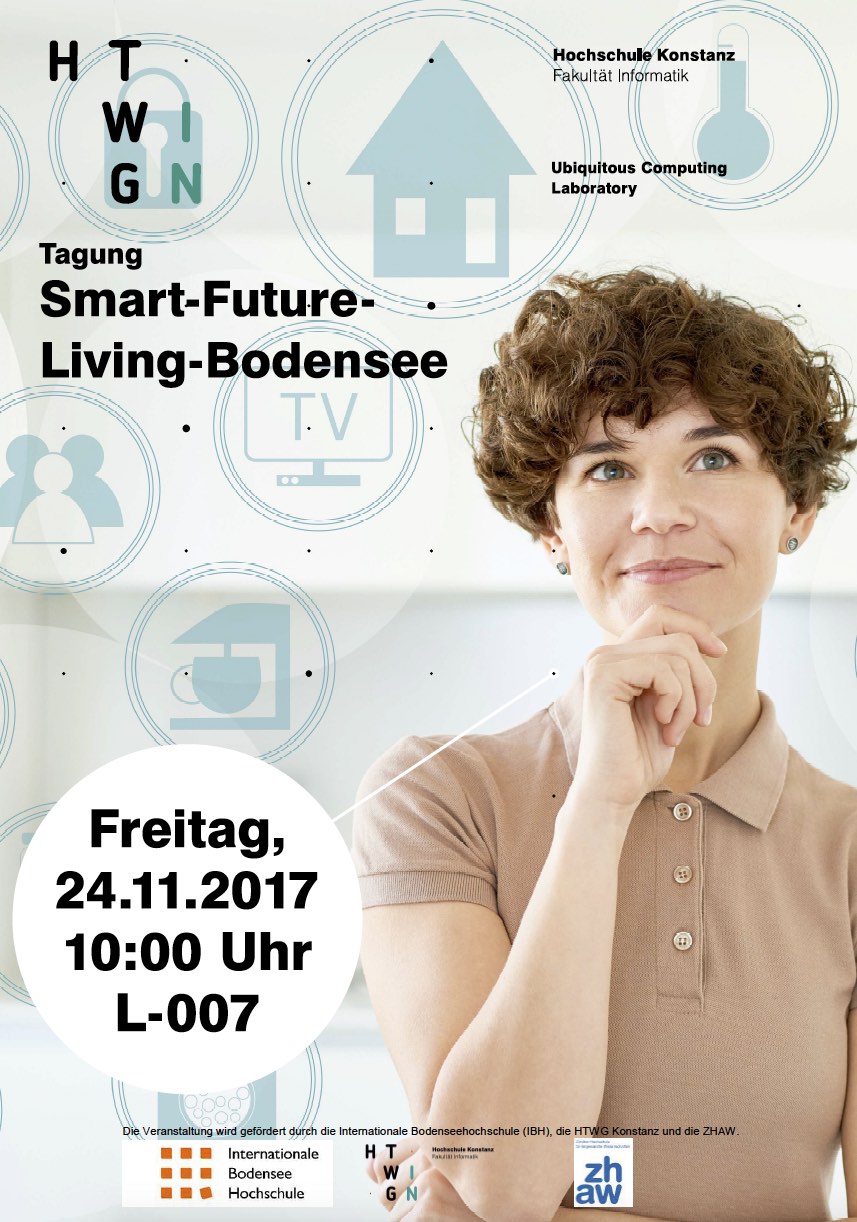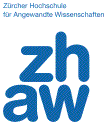![]()
Tagung: Smart-Future-Living-Bodensee
Die Hochschule Konstanz veranstaltet gemeinsam mit der Züricher Hochschule für Angewandte Wissenschaften eine Fachtagung mit dem Titel „Smart-Future-Living Bodensee“ in Konstanz. Die Konferenz beschäftigt sich mit der Fragestellung, in wie weit die neuesten Technologien das zukünftige Leben in Smart Homes unterstützt und was zu tun ist, um den Markt der breiten Öffentlichkeit zu erschließen.
Eine maßgebliche Herausforderung der Zukunft, wie sie auch die Vereinten Nationen in ihrer Agenda 2030 beschreiben, kann nur durch die gezielte Vernetzung diverser Fachrichtungen gelingen. Insbesondere der nachhaltigere Umgang mit den uns zur Verfügung stehenden Ressourcen muss die Industriestaaten in den kommenden Jahrzehnten beschäftigen. Die Konferenz „Smart-Future-Living Bodensee“ soll einen Beitrag hierzu leisten. Hierbei sollen renommierte Vertreter/innen aus der Industrie und der Wissenschaft, aber auch Nachwuchswissenschaftler/innen über die einschlägigen Disziplinen hinweg sich in dem Bereich austauschen. So soll der Grundstein für Strategien und Projekte gelegt werden, welche nicht nur grenzüberschreitend, sondern auch interdisziplinär für eine zukunftsweisende Forschungsarbeit im Bodenseeraum stehen.
Der Grundgedanke der Konferenz ist, dass jede Disziplin schon heute für sich gesehen über die notwendigen Technologien verfügt, um einen angemessenen Ressourcenverbrauch in unserem täglichen Leben zu realisieren und dabei die Lebensqualität, zum Beispiel auch mit Lösungsansätzen aus dem Assisted Living, zu erhöhen. Ziel der Konferenz ist der Wissenstransfer über die Disziplinen und Grenzen hinweg. So sollen die persönlichen Kontakte zu grenzüberschreitenden Folgeprojekten führen.
Zielgruppen
Die Tagung richtet sich an folgende Zielgruppen
- Industrie, Handwerk, Baugenossenschaften, Fachplaner
- Pflegedienstleister, Krankenkassen, Sozialverbände
- Öffentliche Verwaltung
- Clusterinitiativen und Vereine
- Forschung und Wissenschaft
Im Anschluss an die Veranstaltung wird ein Tagungsband erstellt.
Programm ( U P D A T E ! )
09:00 Registrierung
10:00 Eröffnung
Franz Baumgartner (ZAHW), Ralf Seepold (HTWG Konstanz)
10:05 Grußwort
Prof. Dr.-Ing. C. Manz; Präsident, HTWG Konstanz
10:10 Smart Home & Living: Ergebnisse und Strategie der Clusterinitiative
Rathfelder, Christoph; Smart Home & Living Baden-Württemberg e.V.
10:40 Computer-basierende Unterstützungsmechanismen für motorisches Lernen in der Pflege
Dürr, Maximilian; Universität Konstanz
11:10 Technologietransfermanagement im Themenfeld Smart Home & Living im Schwarzwald-Baar-Kreis
Inthasane, Bastian; Landratsamt Schwarzwald-Baar-Kreis
11:40 Do-it-Yourself: Architektur ambienter Assistenzsysteme als ChatBots für Selbstbauer
Judt, Andreas; DHBW Ravensburg
11:55 Smart Home & Living Geschäftsmodelle für Handwerks- und Sozialunternehmen
Braun, Cathrin; Elektro Technologie Zentrum
12:25 Ergänzende Technologien in der Home-Technik – vom stationären zum mobilen Sicherheitsdispositiv
Loonen, Jack; NESTOR AG
12:55 Mittagssnack
14:00 Connected Kitchen: Wie sieht die Zukunft von Essen und Kochen aus?
Jacob, Jessica; Tielsa GmbH
14:30 Smarte Stromspeicher für das Solar-Haus der Zukunft
Baumgartner, Franz; ZHAW School of Engineering
14:45 Nicht-invasive Schlafanalyse durch intelligente Sensorik
Gaiduk, Maksym; HTWG Konstanz
15:00 Forschungsprojekt C/sells
Peter, Kristian; International Solar Energy Research Center Konstanz e.V.
15:15 Das Living Lab für assistives Wohnen der Hochschule Kempten
Fuchs, Dominik; HS Kempten
15:30 Pause
16:00 Intelligentes Monitoring als Basis für verbesserten Komfort und Energieeinsparung
Frick, Jürgen; Materialprüfungsanstalt Universität Stuttgart
16:15 Lehrstunden aus der Implementierung (von SmartHome / AAL Lösungen)
Werner, Tobias; Fachhochschule Vorarlberg
16:30 Das Wohnzimmer als Ort der Therapie
Fuchs, Dominik; HS Kempten
16:45 Testung technischer Assistenzsysteme in der natürlichen Wohnumgebung älterer Nutzer/innen
Pauli, Cora; FHS St. Gallen, Hochschule für Angewandte Wissenschaft, Interdisziplinäres Kompetenzzentrum Alter
17:00 Das LebensPhasenHaus: Ein Ort für Forschung, Demonstration und Wissenstransfer
Evans, Sandra; Universität Tübingen
17:15 Effizienzsteigerung von Photovoltaik Batteriesteuerung durch geschicktes Load Monitoring
Baumann, Patrick; ZHAW
17:30 A review of health monitoring systems using sensors on bed or cushion
Orcioni, Simone; Universitá Politecnica delle Marche
17:45 Abschluss und Verabschiedung
Veranstaltungsinfos
Datum: Freitag 24. November 2017
Uhrzeit: 10 - 18 Uhr
Ort: HTWG Konstanz, Raum L-007
Anmeldung
- Sie erhalten im Anschluss eine automatische Bestätigung über den Eingang der Email.
Die endgültige Einladung wird zu einem späteren Zeitpunkt versandt.
-
Teilnahmegebühr 30 EURO; bitte bringen Sie dies bar mit, da keine Kreditkartenzahlung möglich ist. Sie erhalten eine Quittung. Inbegriffen in der Gebühr sind sämtliche Kaffeepausen mit Getränken und Snacks, das Mittagsessen sowie die Tagungsunterlagen und die Proceedings, die nach der Veranstaltung fertiggestellt und an Sie versandt werden.
Tagungsort / Anreise
Wissenschaftliche Leitung
- Prof. Dr. Massimo Conti (Universita Politecnica delle Marche)
- Prof. Dr. Natividad Martínez Madrid (Fachbereich Informatik, Hochschule Reutlingen)
- Prof. Dr. Simone Orcioni (Universita Politecnica delle Marche)
- Prof. Dr. Ralf Seepold (Fachbereich Informatik, HTWG)
- Prof. Dr. Franz Baumgartner (Zürcher Hochschule ZHAW Schweiz, IEFE SoE)
Organisation
- Maksym Gaiduk
- W. Daniel Scherz
Kontaktperson
Herr Maksym Gaiduk
HTWG Konstanz
Alfred-Wachtel-Straße 8
78462 Konstanz
Telefon: +49 7531 206-703
Email: maksym.gaiduk[AT]htwg-konstanz.de
Die Veranstaltung wird gefördert durch die Internationale Bodenseehochschule (IBH), die HTWG Konstanz und die ZHAW.
-
{gallery}events/Smart-Future-Living-Bodensee/gallery{/gallery}
